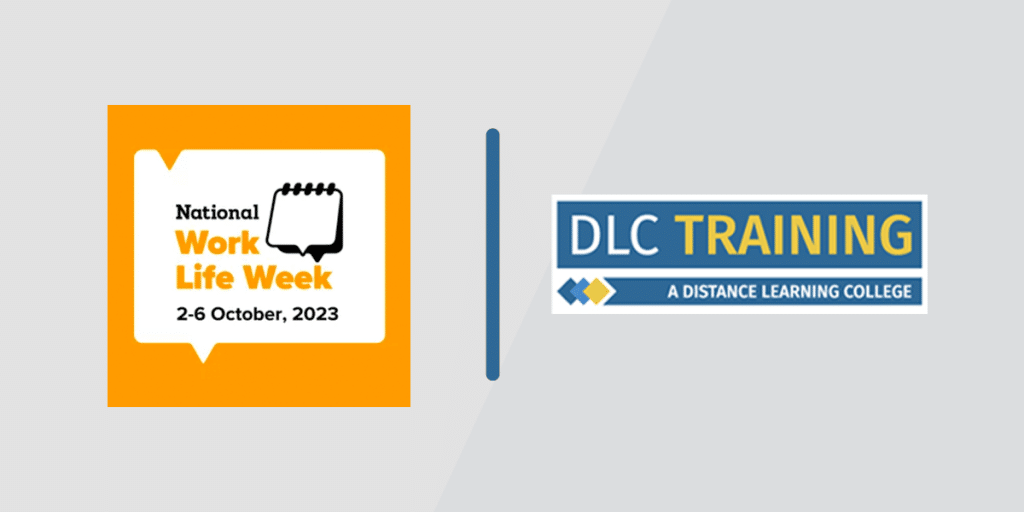The aim of National Work Life Week, which was created by Working Families, is to get both employers and employees talking about wellbeing in the workplace and having a healthy work-life balance.

What Does Work-life Balance Mean?
Cambridge Dictionary’s official definition for work-life balance is “the amount of time you spend doing your job compared with the amount of time you spend with your family and doing things you enjoy.”
Although we hope that you enjoy your work, it’s important to make sure you are getting the balance right between work and your personal life in order to thrive in both aspects.
Why is Work-life Balance Important?
A healthy work-life balance is extremely important, not only for the wellbeing of employees, but for the optimisation of organisational performance. Research has shown that 82% of employees would be more likely to apply for a job if it offered flexible working options to suit their requirements, which highlights just how important work-life balance is. Promoting a healthy work-life balance helps to retain employees, reduce turnover and improve productivity. It will also attract top talent, which will have a positive impact on business performance and growth.
Achieving Work-life Balance
There isn’t a one size fits all when it comes to achieving a work-life balance, as everyone has different commitments outside of work. There are however, a number of things you can do to support your employees, including:
- Flexible working hours
- Remote working
- Compressed work week
- Job-sharing
- Part-time work
Flexible working hours
This working arrangement gives employees the flexibility to choose their start and end times for the work day. For example, if an employee needs to work for nine hours they may choose to work between 7am and 4pm. Or they may decide to chunk this into two sections by working 9am – 1pm and 3pm-7pm for example. This allows employees to have more control over their daily schedules which enables them to better balance their work and personal life. This is in demand across generations, research by LiveCareer has shown that 76% of millennials, 69% of Gen Z and 64% of Gen X expect flexibility.
Remote working
Remote working has become extremely popular since the pandemic in 2020. Today, 39% of UK workers still work from home at least once a week. This can be extremely beneficial in achieving a work-life balance as it saves employees time they would otherwise spend commuting to and from work. It also provides employees with the opportunity to complete personal errands when taking breaks. 47% of workers recorded improved wellbeing from working from home in some capacity, which will enhance their working performance.
Compressed Work Week
This work arrangement allows employees to condense their working hours into fewer days per week. For example, if an employee is contracted to work eight hours over five days each week, they may prefer to work ten hours over four days instead. This can work well for employees who may want an extra day off each week to manage their other commitments better, or those who travel to work and want to save time commuting. A compressed work week can help reduce absenteeism and increase overall job satisfaction.
Part-Time Work
Part-time work provides employees who don’t need or want to work full-time hours the flexibility to work the amount of hours that suits them. Identifying and providing opportunities for part-time work will help the business appeal a whole new group of people. This can be very beneficial when searching for the right candidates.
Job Sharing
Job sharing consists of two or more employees sharing the responsibilities and workload of a single full-time job. This means that each individual in the role would work fewer hours and have more flexibility around the times in which they work. Being open to split full-time job roles between employees can be beneficial for attracting a wider talent pool.
Creating a healthy work-life balance is crucial for employers when trying to achieve a positive workplace. Discover more ways to become a better workplace.